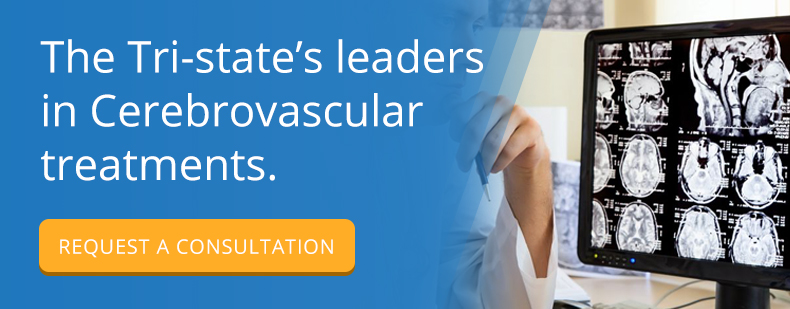Getting diagnosed with a cerebral aneurysm raises a lot of questions. Instead of making assumptions, create a list of questions that you want to ask your doctor. Many patients ask the following questions to help them choose reliable doctors and understand their conditions better.
What Cerebral Aneurysm Treatments Are Available?
Surgeons usually rely on one of two primary options when treating cerebral aneurysms: surgical clipping and endovascular coiling.
Surgical clipping involves making a small incision in the skull so your doctor can locate and isolate the troublesome blood vessel. This approach prevents blood from reaching the aneurysm, which makes it impossible for the aneurysm to burst or leak.
With endovascular coiling, your doctor will insert a catheter into your upper thigh and thread the plastic tube through your arteries to reach the affected area of the brain. Angiography, a type of X-ray, helps the doctor follow your artery to reach the area without causing damage. The doctor will then insert metal coils into the aneurysm. When the aneurysm is filled, blood cannot flow into the affected vessel.
Am I a Good Candidate for These Treatment Options?
Your doctor will need to consider several factors before he or she can decide whether surgical clipping or endovascular coiling will work better for you.
Surgical clipping is often used for young people with aneurysms located near the brain’s surface. Since the surgery requires making an incision in the skull, your doctor needs to consider whether you are healthy enough to recover from the procedure.
Endovascular coiling only requires a small incision, so it doesn’t stress the body as much. It’s also a better option for most patients who have aneurysms deep within their brains or in troublesome areas.
How Long Will I Need to Stay in the Hospital?
The length of your hospital stay largely depends on your health and the type of treatment you receive. If your aneurysm has not bled, then you can expect to spend one to three days in the hospital.
What Experiences Qualify You for Treating Cerebral Aneurysms?
Knowing that your surgeon has helped many other patients recover from cerebral aneurysms can help you relax and understand that you have made the right decision. Ask the surgeon to tell you about his or her success rates. You should also find out how long the surgeon has been practicing. Typically, surgeons with more experience can provide a higher level of treatment.
Some doctors specialize in specific types of surgery. Ask your doctor if he or she specializes in cerebral aneurysm treatments. It’s generally a good idea to choose a specialist who knows how to address unexpected events during surgeries.
What Side Effects Do Patients Experience After Cerebral Aneurysm Treatment
A lot of patients worry that their personalities may change after receiving cerebral aneurysm treatments, especially when the treatment involves surgical intervention in the brain. As long as your aneurysm has not bled, it is unlikely that you will experience any personality changes.
Bleeding aneurysms can cause more difficulties. Those procedures are usually done on an emergent basis to secure the aneurysm. Some deficits reported by patients include:
- Poor concentration
- Difficulty speaking
- Short-term memory loss
- Fatigue
- Poor balance and coordination
- Loss of cognitive processes
These and other side effects can develop in patients who have unruptured aneurysms, but the chance of experiencing them is lower.
How Long Will Recovery Take?
Although most people can return to their regular lives within four to six weeks of surgery, or within a week after endovascular coiling, there are a lot of factors that can influence your recovery time. Talk to your doctor about how your specific condition could influence the length of your recovery.
Will I Need to Change My Lifestyle to Avoid More Aneurysms?
There is a chance that making changes to your lifestyle could help you avoid the growth of aneurysms. Smoking, for instance, increases the risk that you will develop more aneurysms. You also face a higher risk if you have high blood pressure. Lifestyle changes may lower your risk.
There are some risk factors that you cannot control. If you have a family history of brain aneurysms, changing behaviors may not offer much help. Women and people over 40 are also at a higher risk.
Your doctor can assess your risk factors to help you decide whether you need to change some of your habits.
Will I Need More Aneurysm Treatments in the Future?
Your treatment should eliminate any threats from the aneurysm you have currently. Most people who receive cerebral aneurysm treatments do not have to undergo future surgeries, though follow up tests especially after endovascular coiling are common. It is possible that you could develop another aneurysm in the future, about one in four people do. If this happens, you may need to undergo treatment, again.
An experienced doctor can give you information that pertains to your health. Keep in mind, though, that doctors can only make educated guesses about what will happen in the future. A responsible surgeon will give you useful information, but he or she probably will not make any promises about whether you’ll need more treatments.
Recent advances in medical technology make it easier for surgeons to treat cerebral aneurysms. Still, you want an experienced doctor who knows how to make you feel as comfortable as possible. By asking these questions, you can learn a lot more about your doctor and your health.


